What is the truth about vegan diets? Are they healthy? Are the ultra-processed full of fake “meat”? Busting the most common 8 vegan myths
Depending on who you ask, thoughts on vegan diets wildly differ. Some believe they are the best in the world for optimal health, but others assert they lead to nutrient deficiencies and certain illnesses.
As with most things in nutrition, the truth lays somewhere between these two extremes.
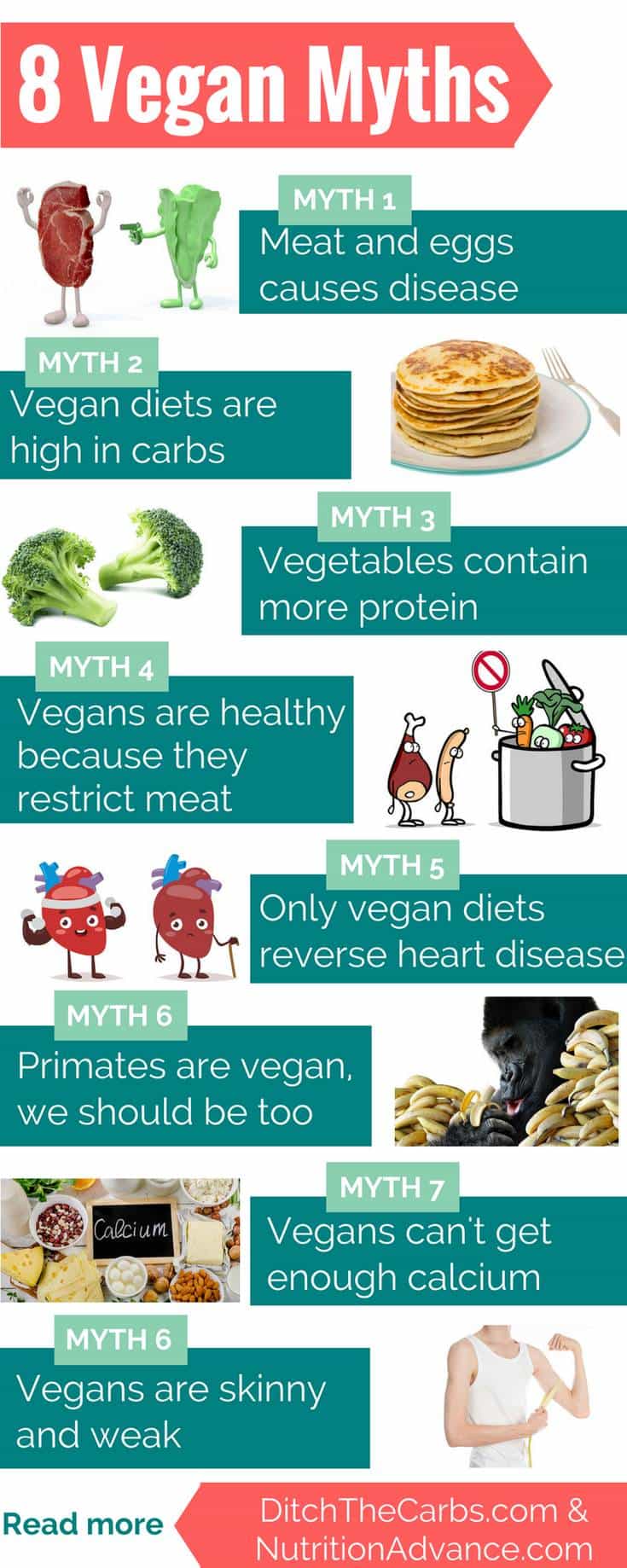
“Busting the vegan myth” is a guest post by Michael Joseph who is a passionate nutrition educator with a master’s degree in Nutrition Education. He is the founder of Nutrition Advance where he frequently writes nutrition and health-related articles. He believes that nutrition advice has become overly complicated and that we need to get back to the basics and value our traditional food. Photo credits go to Nutrition Advance.
Are you ready to lose weight and heal your body for life (without dieting, drugs, or making yourself miserable)?

Our free on-demand video training will walk you through how to make this THE year you set health goals…and keep them.
Firstly, in my personal opinion, vegan diets are not optimal for humans. However, that doesn’t mean veganism can’t be healthy – and it’s certainly possible for some vegans to be healthier than some meat-eaters.
It all depends on the formulation of the diet.
Regardless, this article is not about how to formulate diets; it’s about how we shouldn’t attack other dietary systems based on our personal preferences. In this post, we’ll take a look at some of the biggest myths – both positive and negative – surrounding vegan and meat-based diets.
Myth 1: Meat Causes Disease
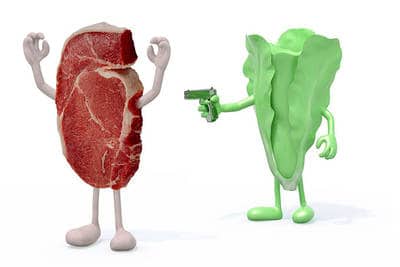
Animal welfare is a huge issue right now and rightly so, and everybody – whether vegan or not – should care about this. Whether we are a meat-eater or not, there is no excuse for treating animals in a cruel and inhumane way.
There are a couple of animal rights groups such as People for the Ethical Treatment of Animals (PETA) and the Physicians Committee for Responsible Medicine (PCRM).
Despite the name of the latter, both of these organizations are animal rights campaigners. I’m sure they both do lots of positive work in this regard. However, they also spend significant sums promoting the vegan diet.
There’s nothing wrong with supporting something you believe in, but the problem here is the methods of this promotion. Namely, publicly spreading the unscientific message that meat and animal foods like eggs cause disease.
What is the truth?
There is no solid evidence that meat or eggs cause disease. Despite previous fears over eggs and their cholesterol content, even the dietary guidelines now admit that “cholesterol is not a nutrient of concern for overconsumption” (1).
In other words, eat all the eggs you like – they are one of the most nutrient-dense foods on earth.
Regarding meat? Sure, there are various studies out there – based on epidemiology – that suggest red meat is associated with increased risk of disease, particularly cardiovascular disease (2, 3).
However, there is not a single randomized, controlled trial that shows meat causes disease. Nor do any of the statistical studies on red meat control for junk food or sugar consumption – and this is important.
The reason?
We’ve been told for years to avoid red meat for our health, so health-conscious people likely follow this advice. In other words, those who eat red meat are more likely to partake in unhealthy lifestyle factors like excessive drinking, smoking, and finding a second home in McDonald’s.
Just what kind of red meat do most people eat? It sure isn’t grass-fed steak with a side of fresh veggies.
Randomised controlled trials
Several randomized controlled trials investigate how red meat affects cardiovascular risk factors. If meat is so dangerous, then we can surely expect negative results from these trials. Conversely, these studies show that meat has, well… not very much impact at all on our lipid profile.
In fact, a meta-analysis of twenty-four randomized, controlled trials showed that red meat intake had no effect on cardiovascular risk factors.
Further, the ratio of total cholesterol to HDL, triglycerides, and blood pressure all decreased over time (4).
Myth 2: Vegan Diets Are Too High in Carbohydrate
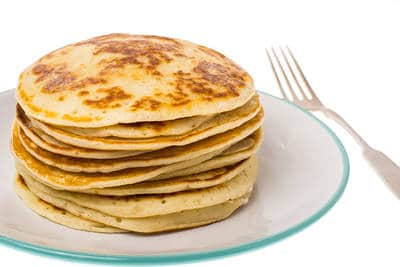
Low carb diets can successfully reverse diabetes, and they often result in effortless weight loss and significant improvements in health markers (5, 6). As a result, higher-carb diets must cause death and disease.
But is it true?
The answer to that is “probably” – if you’re eating a bunch of processed sugars, flours and sodas every day! However, not all carbohydrate is inherently harmful to insulin-sensitive people.
With a well-formulated diet, higher carb and lower fat can work. Maybe it’s not optimal, but many societies have enjoyed good health on a higher carb diet.
It is the combination of high fat and high carb which causes most of the metabolic damage we see today.
One such example is the traditional Okinawans, one of the most long-lived people on record. The Okinawan diet mainly consisted of purple sweet potatoes. Sure, they did eat some fat, but their diet can’t really be called anything other than high carb.
What they did not eat are the industrial foods that are so widespread today.
Vegan diets can be low-carb too
Another key point is that vegan diets do not have to be high in carbohydrates. Many people associate ‘low carb’ with animal foods, but there are plenty of plant foods which are low in carbohydrate and high in fat.
For instance, here are just a few;
- Almonds
- Avocados
- Cashew nuts
- Coconuts (and coconut oil)
- Dark chocolate
- Macadamia nuts
- Olives
- Peanuts
- Pecans
- Seeds
- Walnuts
Combine these with a few vegan protein sources, and you have a low-carb vegan diet.
READ MORE: 30 incredible low-carb vegetarian recipes
Myth 3: Vegetables Contain More Protein Per Calorie
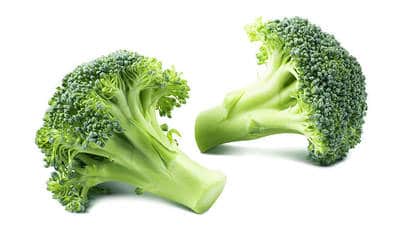
Some vegans claim that as well as being more ethical and healthier than meat, vegetables are also higher in protein. Brocolli is a typical example, and the amount of protein per calorie is the basis for the claim.
Beef vs. brocolli
This claim is almost true, but not quite. In fact, broccoli contains about 2.8g of protein per 100g whereas beef hovers around 22-28g depending on the cut (7, 8).
When we work calories into the equation, beef contains slightly more protein per calorie than broccoli.
The problem?
To get anywhere near as much protein as one steak, you would need to eat more than 1kg of broccoli! With this in mind, most plant foods – broccoli included – contain anti-nutrients such as goitrogens, phytates, and oxalates (9, 10).
Notably, consuming large amounts of these anti-nutrients can reduce the absorption of essential minerals in food (11). While I think many people overplay the “dangers” of these anti-nutrients, eating 1kg of the same veggie isn’t the wisest idea.
Myth 4: Vegans Are Healthy Because They Restrict Meat
People claim that vegans are healthier than meat-eaters and enjoy greater longevity.
Some of the biggest and most quoted references for this come from analysing the Nurse’s Health Study. This study followed the health outcomes of 131,342 participants between 1980 and 2012.
A large-scale review of the Nurse’s Health Study concludes that meat consumption increases cardiovascular mortality (12). As a result, the claim is that we can all improve our health by cutting meat out of our diet.
Does restricting meat improve health?
Whether you agree with veganism or not, most vegans are very health conscious. Typically vegans are more likely to eat a diet based on whole foods, exercise, and get sufficient sleep.
Can you see where this is going?
Meat eaters are more likely to have an unhealthy lifestyle. And the analysis of the Nurse’s Health Study even proves this.
Misleading headlines
Notably, this becomes apparent if we ignore the headlines when we look at the analysis of the Nurse’s Health Study.
The conclusion of the study: “High animal protein intake was positively associated with cardiovascular mortality” (12).
However! If we actually read the study, we can find the following snippet;
“These associations were confined to participants with at least one unhealthy lifestyle factor based on smoking, heavy alcohol intake, overweight or obesity, and physical inactivity, but not evident among those without any of these risk factors.“
A more appropriate conclusion: There were associations between animal protein intake in people living an unhealthy lifestyle and cardiovascular mortality. However, in individuals with a healthy lifestyle, there was no difference between vegans and meat-eaters.
Much more accurate.
Myth 5: Vegan Diets Are the Only Diet That Can Reverse Heart Disease
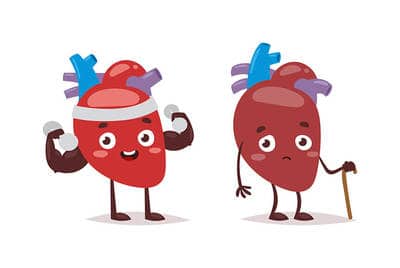
Dr. Dean Ornish, a famous vegan proponent, is referred to as “the first clinician to halt or reverse heart disease.” This claim comes from a randomized, controlled trial from 1990.
Over a 1-year period, more than 82% of (28) patients experienced regression from coronary atherosclerosis (13).
Their diet? A low-fat vegetarian diet.
However…
Although I don’t deny the diet potentially had a positive effect, this small-scale study was more a total lifestyle intervention than a “diet study.” For instance, the trial featured multiple interventions such as stopping smoking, stress management sessions, and an exercise program.
It’s difficult to know precisely what helped the patients improve their symptoms; was it the stress-management? Or possibly the exercise?
Would the diet alone have been successful? The answer is possibly a “yes” to all of these, but we just don’t know.
Nearly 30 years later, there has been no large controlled study that confirms that vegan diets reverse cardiovascular disease.
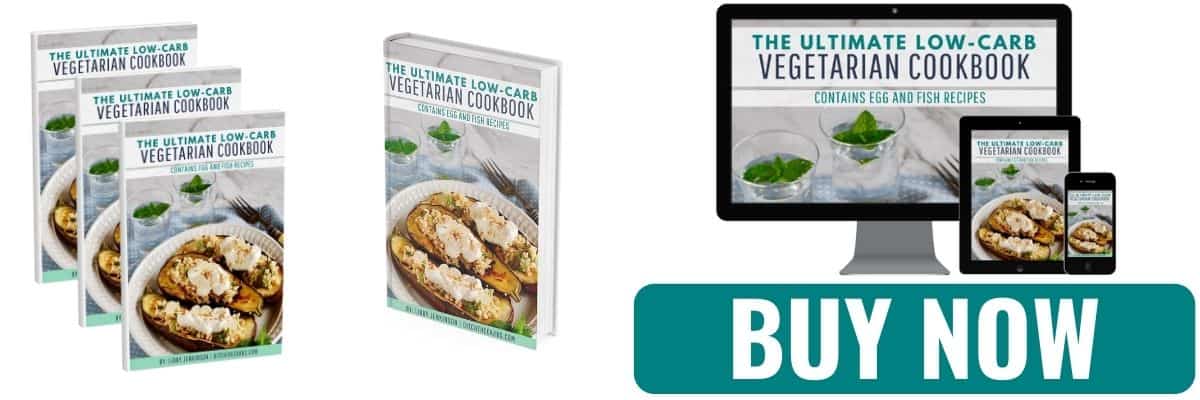
Low-carb diets improve cardiovascular risk factors
Even if a vegan diet can help in treating heart disease, that doesn’t mean only vegan diets are effective. For instance, multiple studies on low-carb diets show that they improve cardiovascular risk factors compared to low-fat diets (14, 15, 16).
The triglyceride to HDL ratio is probably the most significant cardiovascular risk marker. As shown in the above studies, low-carb diets improve HDL levels and lower triglycerides.
Myth 6: Primates Are Vegan – So Veganism is the Diet Humans Are “Designed” For
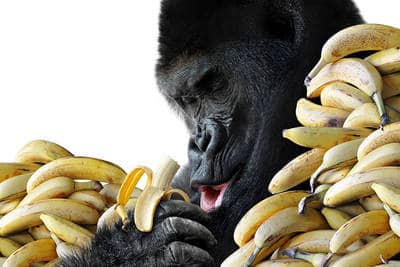
Vegan proponents often note that wild gorillas and other primates such as chimpanzees don’t develop atherosclerosis. Their diet is also vegan, so they must be healthier because they don’t eat meat.
But this just isn’t true
Firstly, many primates are opportunistic hunters. Yes, they mainly eat vegetation, but they will eat pretty much anything given a chance.
Secondly, the idea that wild monkeys and gorillas don’t develop heart disease because of meat? Well, that falls apart when we consider those raised in captivity.
Despite being virtually non-existent in the wild, atherosclerotic heart disease is the single biggest killer in captive chimpanzees – and they certainly aren’t eating meat (17, 18).
What they are eating is a diet full of refined carbohydrates including nutritionally designed biscuits and bars, along with high-sugar fruits. But still, the diet is vegan, low-fat and low in cholesterol.
In other words, their health rapidly declines when they start eating industrially processed foods.
But what happens when they start eating a whole-foods vegan diet in captivity?
Conclusion: a (predominantly) plant-based diet in wild apes causes no problem. On the other hand, an ultra-processed plant-based diet in captivity causes big issues. Refined food is the problem, not meat.
Myth 7: Vegans Can’t Get Enough Calcium
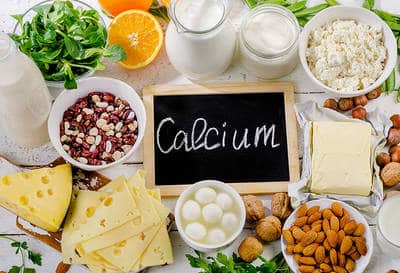
Various anti-vegan propaganda claims that vegan diets are unhealthy because they result in calcium deficiency due to a lack of dairy.
Dairy is not necessary
Personally, I love dairy – especially aged cheeses such as mature cheddar and camembert. It is also true that dairy foods are the best source of calcium in the human diet.
However, dairy is not necessary, and we can get calcium from a wide range of foods. Here are some vegan sources of calcium with their calcium (% of RDA) per 100g;
- Almonds (26%)
- Amaranth leaves (22%)
- Beet greens (12%)
- Bok choy (11%)
- Chia seeds (63%)
- Collard greens (14%)
- Kale (14%)
- Kelp (17%)
- Mustard greens (10%)
- Nopales (16%)
- Okra (8%)
- Rhubarb (9%)
- Sesame seeds (98%)
- Spinach (10%)
- Turnip greens (19%)
Myth 8: Vegan Diets Make Us Skinny and Weak
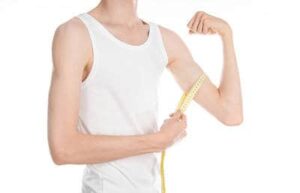
Some people claim that vegan diets make people look skinny, weak and frail.
Diet formulation matters
Like with all dietary systems, it is the formulation of the diet that matters. Some vegans eat a nutrient-poor diet, but others probably eat a lot healthier than 90% of the population.
For example, a ketogenic diet can be extremely healthy if it emphasises nutrient-dense whole foods. On the other hand, if it mainly consists of fats like butter and coconut oil then the nutritional value will be low.
(Just to point out: there’s nothing wrong with butter or coconut oil as condiments – they just shouldn’t be the meal!)
The same applies to vegan diets; a bunch of fake meat substitutes, flours, and vegetable oils? Not so good. But a diet based on fermented soy, nuts, beans, seeds, berries, and greens would be much healthier.
Overall, almost any dietary preference can be healthy or unhealthy depending on how we formulate it.
Summary
To sum up, we need to remember that people have their own reasons for adopting a diet. Many vegans choose their lifestyle for ethical reasons rather than health – and we should respect that.
Likewise, people eat animal foods for the health of their family – we should respect that too.
Despite being a meat-eater, I love animals and hate the thought of killing a living thing for food, so I definitely understand the ethical argument for veganism. But nutrition and health is a vastly different subject to animal welfare.
Currently, there are so many improvements the meat and egg industry can implement to improve animal welfare.
Many vegans are doing an excellent job in highlighting these issues – and they really do need highlighting. However, most of the misleading attacks on meat, fish, and eggs are nothing more than deception and myth.
FREE 7 DAY VEGAN LOW-CARB MEAL PLAN
Welcome to Ditch The Carbs. I have made this simple FREE vegan low-carb meal plan to help you get started in your new healthy way of eating. There are no sugars, no grains, no gluten and no processed food. You will eat fresh, unprocessed food which is lower in carbs and higher in healthy fats.
Take some time to read this page. It is superb for beginners and those who are new here. It covers everything you need to know. Shopping lists, action plans, tips and tricks, why do we eat more fat, why are we grain-free and more.
Some top tips to get you started with your free vegan low-carb meal plan-
- Please click on the RECIPE tab in the main menu. Spend time looking at all the categories of recipes – breakfast, lunch, dinner, baking, desserts.
- Many of my recipes can be made vegan by swapping out the butter for coconut oil, swapping the cheese for vegan cheese, swapping dairy milk for nut milk and cream for coconut cream.
- Make each meal as nutrient-dense as possible.
- Add as many non-starchy vegetables as you can to your meals.
- Eat a wide variety of foods.
- Eat a rainbow of vegetables and some low-sugar fruits.
- Try and get into the habit of making bigger dinners and using the leftovers for lunch the next day.
- Leftovers are KING!
- Eat real food.
- Eat healthy fats.
- Don’t go hungry.
- Learn to recognise hunger from boredom or habit.
- And remember, healthy FAT is your FRIEND.
VEGAN MEAL PLAN – RECIPES
BREAKFASTS
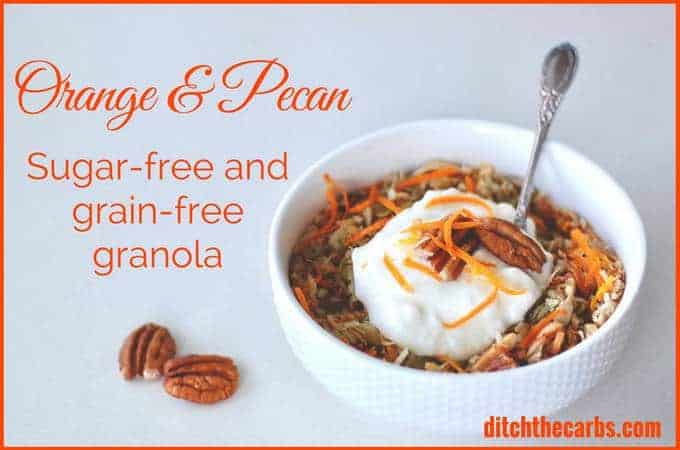


- Mocha chia breakfast
- Orange pecan grain-free granola
- Chocolate green smoothie
- Sugar-free berry chia fresca
- Berry coconut chia breakfast
- Chocolate coconut chia
- Chocolate green smoothie
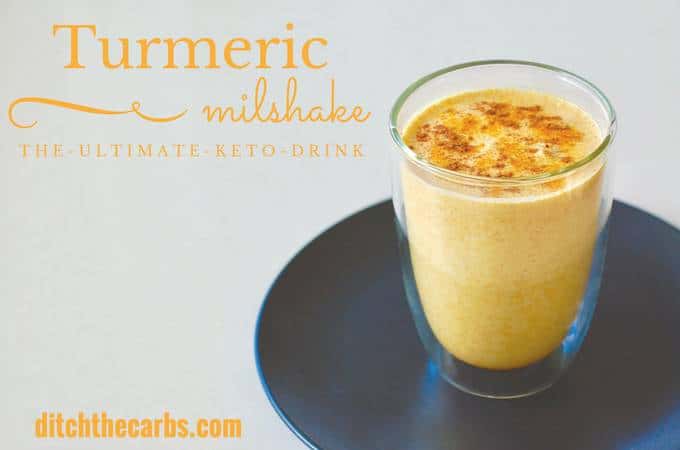


LUNCHES
- Leftovers from dinner the previous night
- Keto turmeric milkshake
- Salad with avocado, macadamias, olives, basil and olive oil.
- Avocado salsa
- Place a selection of nuts, seeds and macadamia oil inside an avocado.
- Leftovers from dinner the previous night.
- Salad with raw broccoli, walnuts, pecan, cashews and chilli infused oil.



DINNERS
- Spaghetti squash, macadamias and avocado oil.
- Zoodles with vegan cheese, nuts, basil and olive oil.
- Baked vegetables with mashed cauliflower and mustard.
- Curried vegetables with cauliflower rice.
- Greek stuffed mushrooms, use nuts/seeds in place of meat, with vegan cheese.
- Eggplant bites, using vegan cheese instead.
- Pumpkin and coconut soup. Use coconut oil in place of butter.
What if you could actually take control of
your health in just 10 days?
It’s not your fault you can’t lose weight as a woman over 40 even though you’ve likely tried literally everything. Your metabolism probably feels broken and your hormones are likely all out of whack.
But you can fix it all with ONE simple change: eliminate sugar. We make it super easy with daily lessons teaching you the science behind what makes us gain weight in our midlife and beyond! Are you ready to get started now?

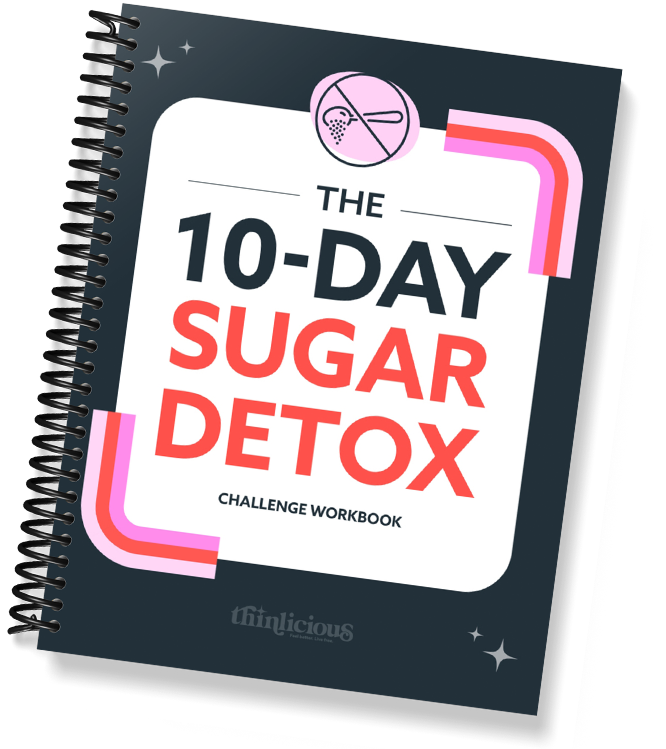






I’d be so interested in seeing what your sponsors are Michael. This is definitely a bias article with many vague and subjective statements.
Totally agree! With trials consisting of barely 20+ people. No peer reviewed study would look twice at this.
So what is a Vegan Protein Source?
Many rely on grains, nuts, seeds, soy, tofu and legumes. So to become low-carb can be a challenge as most of that list is out the window. It can be really tricky to have properly formulated protein with all the essential amino acids.
Beans are extremely high in protein as are soy products.
I found this to be really well written and informative, thank you Libby!
Quinoa is one of the few grains that contains all 9 amino acids and is a good source of protein. In small quantities (1/4 cup cooked) it is a nutrient dense food that might be a helpful addition to a vegan diet. Keeping the serving small reduces the carb count but still provides the benefits it offers. They key is to not go overboard in your serving size!
This article shows a massive misunderstanding of veganism, and a surprising lack of understanding about the current quality of food in America. If you’re talking about the ideal, perfect, hormone free, grass fed cow when you talk about beef then you can disregard everything else and look at just the nutritional value. But that’s not realistic for meat in this country. So much of it is full of hormones and antibiotics and fed on GMO corn and soy (make your own opinions about GMO). 60% of all antibiotics in this country are sold to the livestock industry. Dairy is the same. The cows are so sick there’s actually a legal amount of pus that’s allowed in milk. And telling people to eat as many eggs as they want is grossly misleading. Do your research and look who funded the studies that came out and said eggs were fine. Surprise, it’s the egg industry. The USDA is literally bought and paid for my the livestock and agriculture lobbies. The dietary guidelines they put out are actually written by those same industries. The USDA literally had “check off programs” that are specifically designed to be used for advertising. When that super, ultra, triple meat, triple cheese burger for a limited time only ad comes on TV, guess who funds that? The USDA with American tax dollars.
You must be the What the Health guy.
I was expecting someone like him in the comments.
Talking about hormones and pus.
Keep your thougths to yourself pal.
Why? You don’t want to hear the truth? Check it out for yourself… don’t take someone’s word for it. Plenty of research done on this… in case you actually want to know the truth that is.
Unfortunately, “Check it out for yourself” means you are always taking someone else’s word for it unless you do the study yourself. What you mean, is find the perspective that you want to be true, and agree with it.
Well said! Thank you
Very well written, and to be honest I really love animals and respect the people that prefer veganism but in most researches i’ve ever read, the greater problem about a vegan diet is not the protein but the vitamin b complex. A diet that needs supplements, isn’t a healthy diet. All in good measure – avoid extremities and everything will be fine!
There are plenty of meat eaters, particularly in the elderly that require B12 supplements. This seems to be a topic that meat eaters grab on to to demote a vegan diet.
That makes no sense. Do you realize the meat that you eat is supplemented with vitamin b12? Do you have any idea where b12 comes from? It’s found in soil. We are such a sanitary society it’s washed off of everything before we get a bite of it. Of course though taking a vitamin will clearly make you unhealthy, HA! I’m so sick of hearing people making UNEDUCATED assumptions about plant-based diets. If you buy meat and contribute to factory farming, you are not only killing animals you are killing the world we live in and yourself. Wake up people, do your own research and make your own decisions. Oh and btw carbs are the bomb!
Please be respectful for everyone’s point of view. This article was supposed to stop the extreme opinions, from either side. If “carbs are the bomb”, I think you may need to find another site to comment on. I support the view that you can be vegetarian (or vegan) and low-carb if formulated properly. I have so many amazing readers who follow this way of eating with superb success. 🙂
shut up moron. i don’t put no vitamin on my meat. carbs are trash
Well said! Thank you !
Megan Searle,, you legitimately come off as that crazy vegan that nobody wants to hangout with or be around, because you view yourself as superior, and have no respect for other people’s beliefs or rights. I have a feeling you don’t have many people super close to you, and I feel kinda bad.
There are many misconceptions about vegan diet going around. The truth is you can be (un)healthy on any diet. I think that food quality and balance is the most important. Ultimately, you have to find what works best for you, the first step being conscious about what you eat (for health and ethical reasons equally), not blindly follow contrary opinions and information. Your body knows best. Veganism is compassionate and cruelty-free lifestyle, not just diet, but it’s not for everyone and that is OK.
Ashley that is exactly how I see it too. What a lovely and inclusive comment to read this morning. Too many people are either anti-vegan or anti-omnivore. I believe if a dietary lifestyle is working for a person, it is in line with their ethics (whichever way that goes) and they have no health concerns then that is all we can ask for. Any lifestyle can be unhealthy. A poorly formulated vegan, vegetarian, pescatarian or omnivore can all be incredibly unhealthy or each one can bring richness, variety and health. Tolerance, and help guiding those along the way, is what’s needed.
HA! RIDICULOUS AND CLEARLY UNEDUCATED.
‘Meat does not cause disease’….So, we are just assuming that something listed as a carcinogen isn’t disease-causing?
Do the research before you make that assumption. There is some real good studies that are proven that meat consumption causes cancer
I myself am vegan, but I find most omnivorous and vegan articles to be biased. I thought you did a really good job at looking at this from an unbiased standpoint – thank you!
Thanks for trying to bring some light to a complicated subject.
Unfortunately, your article spreads many anti-vegan mistruths, and refers to a number of poorly designed studies that favour the meat and dairy industry.
Perhaps most misleading is your statement that:
“There is no solid evidence that meat or eggs cause disease. Despite previous fears over eggs and their cholesterol content, even the dietary guidelines now admit that “cholesterol is not a nutrient of concern for overconsumption” (1).”
But in fact, the current US nutritional guidelines state:
“As recommended by the IOM,[24] individuals should eat as LITTLE DIETARY CHOLESTEROL AS POSSIBLE while consuming a healthy eating pattern.”
(My caps for emphasis). I invite you to read it yourself here:
https://health.gov/dietaryguidelines/2015/guidelines/chapter-1/a-closer-look-inside-healthy-eating-patterns/
I have no doubt that a Paleo diet does wonders for some people, and helps get them off processed foods. However, a properly designed whole-food, plant based, vegan diet is simply further along that spectrum of good health. It is only deficient in one vitamin, Vitamin B12, because of the high standards of hygiene we hold in modern society. That deficiency is a complete non-issue, and is easily catered for.
Totally agree, Tony. A whole foods plant-based diet cleans out your body of toxins, brings you back to your ideal weight, dramatically lessens inflammation, gives you more energy and makes you feel rejuvenated.
One requirement, though, as you and the author point out: you need to know what to eat, so that your diet is balanced. But it is definitely superior to any other diet.
Foods don’t remove toxins. That’s what your organs are for!
The food has the nutrients that support the organs- which carry out the biological processes we need for good health. Detox is usually used as laymen term for this homeostasis. Vegan diet is PARAMOUNT to health.